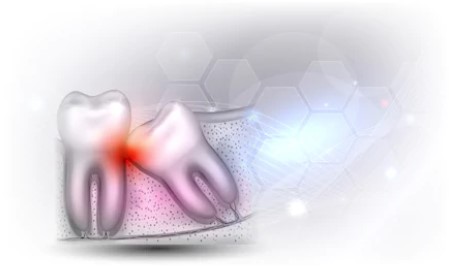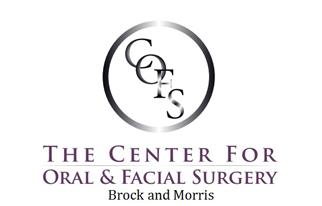Wisdom Tooth Extractions
Wisdom Tooth Extractions
 The average adult has 32 teeth by age 18 — 16 teeth on the top and 16 teeth on the bottom. Each tooth in the mouth has a specific name and function. The teeth in the front of the mouth (incisors, canine and bicuspid teeth) are ideal for grasping and biting food into smaller pieces while the back teeth, or molar teeth, are used to grind food up into a consistency suitable for swallowing.
The average adult has 32 teeth by age 18 — 16 teeth on the top and 16 teeth on the bottom. Each tooth in the mouth has a specific name and function. The teeth in the front of the mouth (incisors, canine and bicuspid teeth) are ideal for grasping and biting food into smaller pieces while the back teeth, or molar teeth, are used to grind food up into a consistency suitable for swallowing.
However, the average mouth is made to hold only 28 teeth. It can be painful when 32 teeth try to fit in a mouth that holds only 28 teeth. These four other teeth are your Third Molars, also known as “wisdom teeth.”
Wisdom Teeth Pain Relief
Please call 281-392-1130 if you would like to schedule a consultation to discuss wisdom teeth extraction at our office. You can also book an appointment for your wisdom tooth pain relief here.
Wisdom Teeth FAQs
Do I need My Wisdom Teeth?
Technically, no you do not need your wisdom teeth. Your teeth will function fine and as designed without wisdom teeth. As the last teeth to erupt and when they align properly — and gum tissue is healthy — wisdom teeth do not have to be removed. However, for the lucky few whose wisdom teeth appear to be aligned and functioning, they are prone to disease and should be examined annually.
When Should I have Wisdom Teeth Extracted?
It is best to remove wisdom teeth when the patient is young, generally 12- to 17-years-old before the root has formed fully. This makes the process of extraction easier as there is less chance of the tooth having damaged a nerve or the surrounding area. Your dentist will be able to recommend when to have the procedure.
Why Should I Have My Wisdom Teeth Removed?
Nine out of every ten people have or will have at least one problematic wisdom tooth. For example, by the time a wisdom tooth has become impacted (e.g., pressing against the next molar as it is erupting through the gum) and you feel the pain, it is too late to prevent the problem(s) the wisdom tooth is causing. Additionally, extraction may become slightly more complicated. But rest assured, the oral surgeons here at COFS are well prepared, experienced and ready as they are often the referral surgeons of choice for the Houston area’s most difficult cases.
How Long Is The Recovery Time?
Recovery time varies from patient to patient and may be subject to the procedure itself. For example, patients who are older than their teen years and/or have waited until they feel pain may have a more complex extraction and a slightly longer recovery time. However, in general, you can expect some minor discomfort and possible swelling for two or three days, possibly a week. Your oral surgeon may prescribe medication to manage any pain.
Do I Have To Have Extractions Done At A Hospital?
Typically, the oral surgeons at COFS perform wisdom tooth extractions (a type of oral surgery) right here in the COFS office. Our surgeons are highly trained in oral surgery and care as well as the administration of anesthesia to ensure your procedure is painless, safe and comfortable. You can expect the procedure to take about an hour and you will need someone to drive you home. You will get a better idea of how long your procedure may take following your consultation with an oral surgeon.
Who Will Extract My Wisdom Teeth?
COFS surgeons work to maximize patient comfort and perform all outpatient surgery here in the COFS office. Drs. Brock and Morris perform the extractions and have the training, license and experience to provide various types of anesthesia to allow patients to select the best alternative. We provide all of our services in an environment of optimum safety, utilizing modern monitoring equipment and staff experienced in anesthesia techniques.
What Can I Eat After Wisdom Tooth Removal?
What you can eat after you’ve had your wisdom teeth removed is important, but what you do after you eat is even more important. You may feel some soreness in your jaw and the extraction area so you will want to avoid foods that require chewing pressure (e.g., steak) or opening your mouth wide (e.g., corn on the cob). You’ll also want to stay away from spicy or acidic foods (including orange juice and the like). Stick to soft foods like mashed potatoes, broths and ice cream, etc. After you’ve eaten, it is extremely important to flush the surgical area with warm water to be sure there are no food particles caught where your wisdom teeth use to be. Your oral surgeon will provide you with a detailed list of dos and don’ts regarding foods as well as a tool you use yourself to flush the gum area.
Is Wisdom Tooth Extraction Painful?
No. Your oral surgeon will numb the area before beginning, and will perform the extraction while you are under an appropriate anesthesia (i.e., sedation or “asleep”). This maximizes patient comfort. It is not uncommon for patients to feel as if no time has past from the beginning to the end of the procedure. Afterwards, some patients may experience mild discomfort, typically for only two or three days. Your surgeon may prescribe medication to manage any pain.
What Should I Expect After Having My Wisdom Teeth Removed?
Patients whose wisdom teeth were impacted or were otherwise causing pain, can expect to feel much better as the surgical area heals now that the source of the pain is gone. Your oral surgeon will go over in detail with you what to expect following your procedure, but in general, your tongue will notice the missing molar (if it was fully erupted), but do try to leave the area alone. Depending on the procedure, you may feel stitches. These will dissolve in a few days. You may feel some soreness in the jaw or gums. This will ease in the next day or so. You will also need to watch what you eat and drink (you need to stay away from hard and/or acidic foods). Again, your oral surgeon will provide you with a complete list of dos and don’ts.
